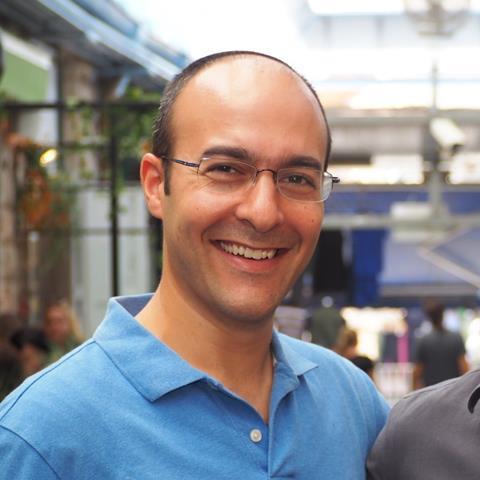Artificial intelligence (AI) can be used for many things, but is responding to and preventing mass shootings its next frontier?
A dispiriting, common storyline seen in 2024’s news is often that of mass tragedies that involve firearms and resulting in multiple casualties.

Events in Australia in the past week have seen two separate ‘lone wolf’ attacks in Sydney, using knives rather than guns, but the marauding style of attack has been much the same.
There are many reasons why these events occur — a lack of mental health support, lax gun control, etc — but little traction to solving these underlying problems.
But what if an AI programme existed to identify suspicious activity or objects before the onset of a shooting, and, if an incident begins, to detect the shooting and automate the critical processes to contain threats?
That is the mission of Yoni Sherizen (pictured), CEO of Israeli tech firm Gabriel and a former rabbi who leads a diverse team. On Gabriel’s roster are a devout Muslim and Palestinian living in East Jerusalem, and a US citizen of Indian Hindu heritage.
“We come at it from the perspective of trying to save lives after seeing a near-miss with an attack here in Israel, which essentially was a mass shooting,” Sherizen said. “We saw from close range how it could have gone so wrong, so we quickly started peeling back the layers of the onion, step by step, to see how such an incident unfolds.”
“What we’ve found is that there are patterns that present themselves in virtually every one of these situations,” he continued. “When you identify the pattern, you can also identify breakpoints or early detection of that pattern. That leads to early interventions. We built the technology to pick up on those things and provide the critical tools needed in real-time to mitigate a threat.”
The key is to understand what is occurring in real-time, he emphasises, which means two-way communication. The most-dangerous thing, he said, is to have chaos, with people not knowing what to do, and responders ignorant of an unfolding situation.
“When things start to slip out of control, you have misinformation and miscommunication,” he said. “That makes these incidents become prolonged and as every second goes by, these incidents become more harmful, dangerous, and costly. That’s why we wake up each morning and do what we do.”
Gabriel works by sending alerts to people on the premises when a mass shooting begins to take place and gives what Sherizen calls ‘the right information’ to the right people. The application tells the recipient where it is safe to escape to, as well as relaying vital intelligence in real-time to responders. The idea is to improve the situation or, if you see something suspicious, to send important, critical information, before the situation can escalate further out of control.
Sherizen and his company spotted an application for the insurance sector, working in the crisis management and malicious risks space, among specialty insurers, brokers and associated service providers.
“We spoke to customers, and said they should go to their insurer and see what discounts or benefits get offered,” he said. “But then we started going to the insurers ourselves and saying, ‘Look, we can dramatically reduce that risk for you by putting smart, simple, and affordable technology into the environment.’”
London market insurance company Chaucer has brought in Gabriel as a technology partner. The London firm bakes access to Gabriel’s product into its policies. Other firms, he said, are offering discounts to customers who sign up for the technology.
The company is based in Israel, a country which is currently at war in Gaza, a source of tension, and facing an ongoing escalatory situation of military action with Iran, which arms proxy groups Hamas and Hezbollah, in Gaza and Lebanon, respectively, and struck Israel directly in recent days.
He says his team is accustomed to tensions and the risk of violence, which informs their expertise.
“We have people on our team from Palestine and we have someone who walks around at night with a handgun because he lives in an area that’s dangerous for many. That all adds some degree of religious complexity and depth to the picture. But it reinforces constantly what we do as a team,” Sherizen added.










No comments yet